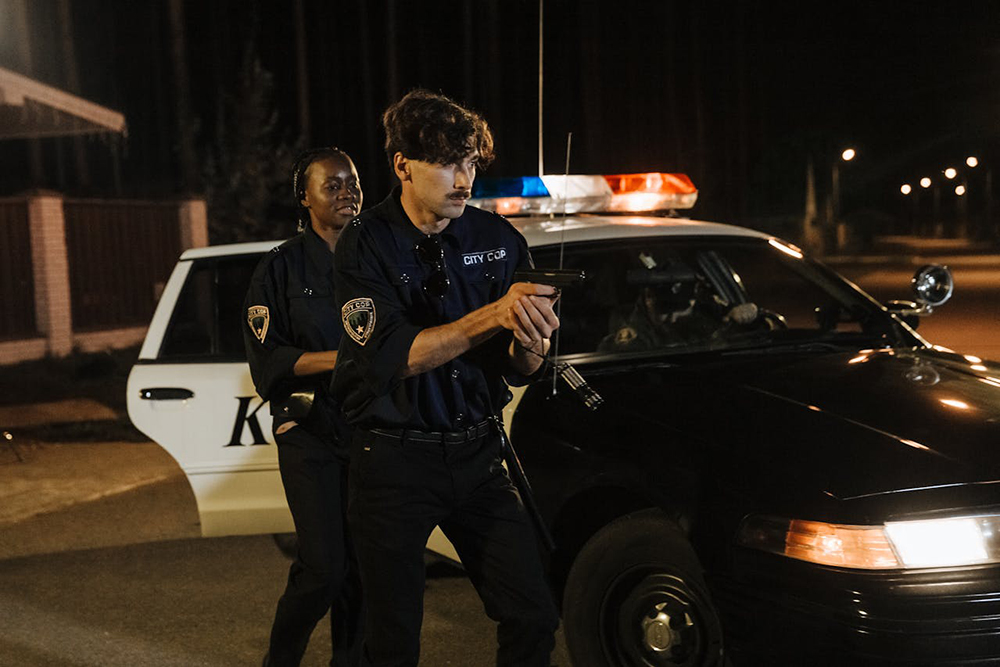Police body cameras have become a valuable tool in law enforcement, offering additional transparency and accountability. California’s body camera policies are evolving to balance public interest, police protection and individual privacy rights.
While body cameras can provide crucial evidence in court cases, they also introduce unique legal challenges. Understanding these implications – and how they may affect your case – can help you make informed decisions if you face criminal charges.
What Are Police Body Cameras?
Many law enforcement officers wear small, portable devices that record interactions with the public. These devices capture audio and video footage, which is later reviewable for accountability, evidence collection and training.
California police departments have increasingly adopted body cameras to ensure accurate documentation of incidents. However, the laws governing body camera use vary depending on the jurisdiction
California Laws on Police Body Cameras
California has implemented several laws surrounding body camera use.
- Public access to footage: Body camera footage is a matter of public record under California’s Public Records Act. However, access can be restricted if the footage involves ongoing investigations or sensitive information.
- Disclosure rules: Senate Bill 1421 requires public disclosure of body camera footage related to incidents involving the use of force or serious misconduct. The footage must be released within 45 days unless doing so would interfere with an investigation.
- Privacy protections: Officers are typically prohibited from recording inside private residences or during confidential conversations unless legally justified.
These policies aim to balance transparency with the need to protect sensitive information and privacy.
How Body Camera Footage Affects Evidence
Body camera footage offers a real-time record of police interactions, which can prove valuable in court. However, its impact depends on footage use.
- Supporting evidence: Body camera footage can confirm your version of events. For example, it may show that a police officer used excessive force or violated your rights during an arrest.
- Contradicting testimony: Footage can challenge officers’ or witnesses’ statements, exposing inconsistencies that could strengthen your case.
- Providing context: In many cases, video evidence can provide crucial context that may not be apparent from written reports or witness testimony. This background information can be vital in cases involving allegations of resisting arrest or other ambiguous situations.
Legal Implications of Body Camera Footage
While body camera footage can be beneficial, it also raises several legal concerns.
- Incomplete or missing footage: Body cameras are imperfect solutions. An arresting officer may forget to turn their camera on before making an arrest, or the video may be choppy or blurry. Missing footage can create reasonable doubt that an opposing attorney might use to argue for case dismissal.
- Selective interpretation: Interpreting body camera footage is not always straightforward. Video angles, lighting and audio quality can influence a viewer’s perception. Your defense attorney can call on expert witnesses to analyze the footage and provide context.
- Privacy violations: In some cases, body camera footage may inadvertently capture sensitive personal information. Footage obtained without proper legal justification may be inadmissible in court.
The Importance of a Skilled Defense Attorney
Body camera footage can be a double-edged sword – it can exonerate you or build a compelling case against you. A qualified defense attorney will review every second of available footage to identify evidence that supports your case. If necessary, your lawyer may collaborate with experts to evaluate video quality, timelines and other technical details that could influence the interpretation of the footage. They can also file a motion to suppress video evidence obtained in violation of your rights.
With more than 45 years of experience, Ronald Brower has an in-depth understanding of the legal system and how to handle complex cases involving body camera footage. His commitment to excellence ensures that your rights will be protected every step of the way.
While police body cameras offer transparency, they also introduce new challenges in criminal cases. Hiring a skilled defense attorney is critical if you face charges where body camera footage is part of the evidence. Contact our Southern California law office today for a consultation. We’ll fight to achieve the best possible outcome for your case.

